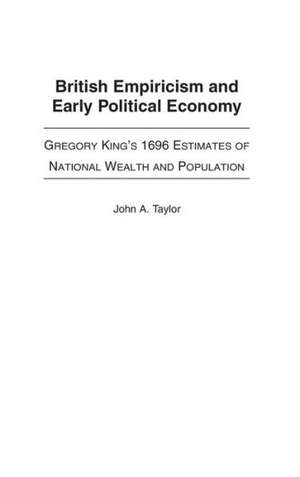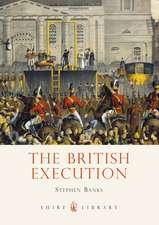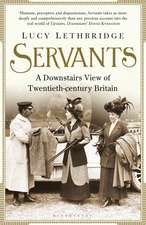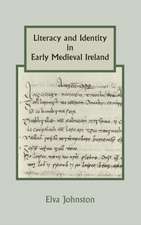British Empiricism and Early Political Economy: Gregory King's 1696 Estimates of National Wealth and Population: Contributions to the Study of World History
Autor John A. Tayloren Limba Engleză Hardback – 29 mar 2005 – vârsta până la 17 ani
Din seria Contributions to the Study of World History
- 27%
 Preț: 463.13 lei
Preț: 463.13 lei - 27%
 Preț: 345.23 lei
Preț: 345.23 lei - 28%
 Preț: 435.48 lei
Preț: 435.48 lei - 38%
 Preț: 436.99 lei
Preț: 436.99 lei - 27%
 Preț: 439.69 lei
Preț: 439.69 lei - 38%
 Preț: 437.67 lei
Preț: 437.67 lei - 27%
 Preț: 440.20 lei
Preț: 440.20 lei - 28%
 Preț: 460.60 lei
Preț: 460.60 lei - 28%
 Preț: 495.69 lei
Preț: 495.69 lei - 28%
 Preț: 436.57 lei
Preț: 436.57 lei - 24%
 Preț: 460.01 lei
Preț: 460.01 lei - 28%
 Preț: 436.22 lei
Preț: 436.22 lei - 27%
 Preț: 443.57 lei
Preț: 443.57 lei - 27%
 Preț: 438.33 lei
Preț: 438.33 lei - 27%
 Preț: 345.74 lei
Preț: 345.74 lei - 28%
 Preț: 438.00 lei
Preț: 438.00 lei - 28%
 Preț: 437.84 lei
Preț: 437.84 lei - 28%
 Preț: 437.84 lei
Preț: 437.84 lei - 38%
 Preț: 440.36 lei
Preț: 440.36 lei - 27%
 Preț: 440.61 lei
Preț: 440.61 lei - 24%
 Preț: 461.87 lei
Preț: 461.87 lei - 28%
 Preț: 437.91 lei
Preț: 437.91 lei - 28%
 Preț: 498.40 lei
Preț: 498.40 lei - 28%
 Preț: 461.28 lei
Preț: 461.28 lei - 35%
 Preț: 464.48 lei
Preț: 464.48 lei - 27%
 Preț: 465.68 lei
Preț: 465.68 lei - 24%
 Preț: 463.55 lei
Preț: 463.55 lei - 28%
 Preț: 460.60 lei
Preț: 460.60 lei - 28%
 Preț: 438.17 lei
Preț: 438.17 lei - 28%
 Preț: 460.60 lei
Preț: 460.60 lei - 38%
 Preț: 345.74 lei
Preț: 345.74 lei - 27%
 Preț: 437.67 lei
Preț: 437.67 lei - 24%
 Preț: 462.97 lei
Preț: 462.97 lei - 28%
 Preț: 436.47 lei
Preț: 436.47 lei - 24%
 Preț: 460.93 lei
Preț: 460.93 lei - 27%
 Preț: 440.20 lei
Preț: 440.20 lei - 27%
 Preț: 364.22 lei
Preț: 364.22 lei - 28%
 Preț: 437.40 lei
Preț: 437.40 lei - 28%
 Preț: 344.90 lei
Preț: 344.90 lei - 27%
 Preț: 438.84 lei
Preț: 438.84 lei - 24%
 Preț: 464.40 lei
Preț: 464.40 lei - 27%
 Preț: 463.38 lei
Preț: 463.38 lei - 28%
 Preț: 436.99 lei
Preț: 436.99 lei - 27%
 Preț: 439.34 lei
Preț: 439.34 lei - 27%
 Preț: 345.90 lei
Preț: 345.90 lei - 28%
 Preț: 462.61 lei
Preț: 462.61 lei - 24%
 Preț: 463.97 lei
Preț: 463.97 lei - 19%
 Preț: 462.20 lei
Preț: 462.20 lei - 27%
 Preț: 581.72 lei
Preț: 581.72 lei
Preț: 463.05 lei
Preț vechi: 609.70 lei
-24% Nou
Puncte Express: 695
Preț estimativ în valută:
88.61€ • 94.75$ • 73.88£
88.61€ • 94.75$ • 73.88£
Carte tipărită la comandă
Livrare economică 18 aprilie-02 mai
Preluare comenzi: 021 569.72.76
Specificații
ISBN-13: 9780313313066
ISBN-10: 0313313067
Pagini: 208
Dimensiuni: 156 x 235 x 21 mm
Greutate: 0.58 kg
Ediția:New.
Editura: Bloomsbury Publishing
Colecția Praeger
Seria Contributions to the Study of World History
Locul publicării:New York, United States
ISBN-10: 0313313067
Pagini: 208
Dimensiuni: 156 x 235 x 21 mm
Greutate: 0.58 kg
Ediția:New.
Editura: Bloomsbury Publishing
Colecția Praeger
Seria Contributions to the Study of World History
Locul publicării:New York, United States
Notă biografică
John A. Taylor is Professor of History at Southern Illinois University, Edwardsville. He has also taught in Japan and Russia as a Fulbright scholar. Among his other books are British Monarchy, English Church Establishment, and Civil Liberty (Greenwood, 1996) and Diana, Self-Interest, and British National Identity (Praeger, 2000).
Cuprins
ChaptersPreliminary RemarksMathematical Probability and Demographic PredictionGregory King: Man of ProjectsBritish Empiricism and Shop ArithmeticHigher Mathematics and 17th-Century Political EconomyShop Arithmetic, Conversation, and ProjectsQueen Anne's BountyGregory King's Methods of CalculationWhat Was Political Arithmetic, Really?George Chalmers and the Stagnation of Political ArithmeticWobbles and PerturbationsAcknowledgments and AfterthoughtsReprinted Documents by or about Gregory KingKing's AutobiographyKing on the Naval Trade of EnglandKing's Natural and Political Observations, 1696King's Letter about Queen Anne's BountyThe Life of Gregory King by George Chalmers
Recenzii
Taylor sets out to defend King, whose work he admires and whose methods he believes were remarkably effective considering the limitations and unreliability of the data on which he could draw. While studies of a statistical pioneer do not usually suggest a lively text, readers may find Taylor's short study surprisingly stimulating and enthralling. This is partly due to the enthusiasm Taylor brings to the topic and his very genuine admiration for Gregory King. Although far from uncritical, and well aware of the limitations of King's results, he cogently argues that King was hampered not so much by his methodology as by the data he had to work with.
Taylor leads his readers on a journey around, rather than through, King's Estimates. Engaging and well informed, he introduces us to King's circle of coversation and to forerunners and contemporaries among the illuminati^R if empiricism (English and continental)..Although Taylor cannot tell us on what most of the Estimates was based (King left few notes), and though King's successors would use modern mathematics, Taylor persuades this reader that the estimates was calculated by the best means at hand and without political motivation. Taylor leaves the reader well informed about the contingent and circumstantial influences on the Estimates. He appends King's short autobiography, the 1696 Estimates themselves, Robert Chalmers's brief biography of King, and finally, a bood bibliography. Altogether, this book deserves our praise and a wide readership. Math-phobic historians should know the text is fully reader friendly. Taylor makes it fun to learn all this.
[A] fascinating and discursive discussion of the birth of political arithmetic and Gregory King's working methods . Taylor's approach makes for absorbing reading and his synthesis demonstrates the vital role of 'shop arithmetic' and observation in King's workign practices.
Engraver, herald, surveyor, and Secretary to the Commissioners for the Public Accounts, King (1648-1712) is best known for his 1696 estimate of England's wealth and population, and his early articulation of what is now the ubiquitous law of supply and demand, though known by some as King's Law. Taylor (history, Southern Illinois U.-Edwardsville) interprets both accomplishments in light of the history and statistical sciences.
Taylor leads his readers on a journey around, rather than through, King's Estimates. Engaging and well informed, he introduces us to King's circle of coversation and to forerunners and contemporaries among the illuminati^R if empiricism (English and continental)..Although Taylor cannot tell us on what most of the Estimates was based (King left few notes), and though King's successors would use modern mathematics, Taylor persuades this reader that the estimates was calculated by the best means at hand and without political motivation. Taylor leaves the reader well informed about the contingent and circumstantial influences on the Estimates. He appends King's short autobiography, the 1696 Estimates themselves, Robert Chalmers's brief biography of King, and finally, a bood bibliography. Altogether, this book deserves our praise and a wide readership. Math-phobic historians should know the text is fully reader friendly. Taylor makes it fun to learn all this.
[A] fascinating and discursive discussion of the birth of political arithmetic and Gregory King's working methods . Taylor's approach makes for absorbing reading and his synthesis demonstrates the vital role of 'shop arithmetic' and observation in King's workign practices.
Engraver, herald, surveyor, and Secretary to the Commissioners for the Public Accounts, King (1648-1712) is best known for his 1696 estimate of England's wealth and population, and his early articulation of what is now the ubiquitous law of supply and demand, though known by some as King's Law. Taylor (history, Southern Illinois U.-Edwardsville) interprets both accomplishments in light of the history and statistical sciences.











